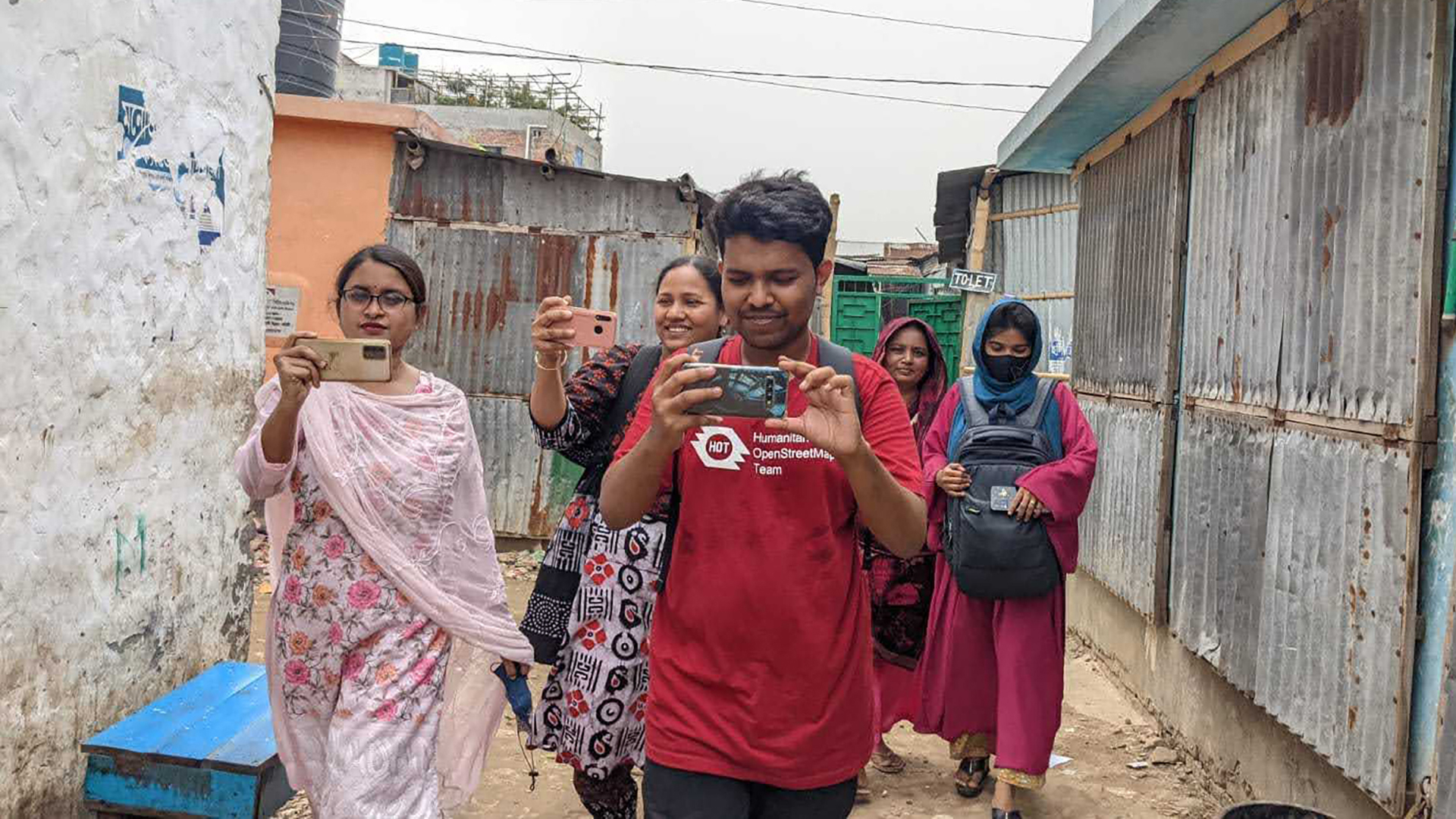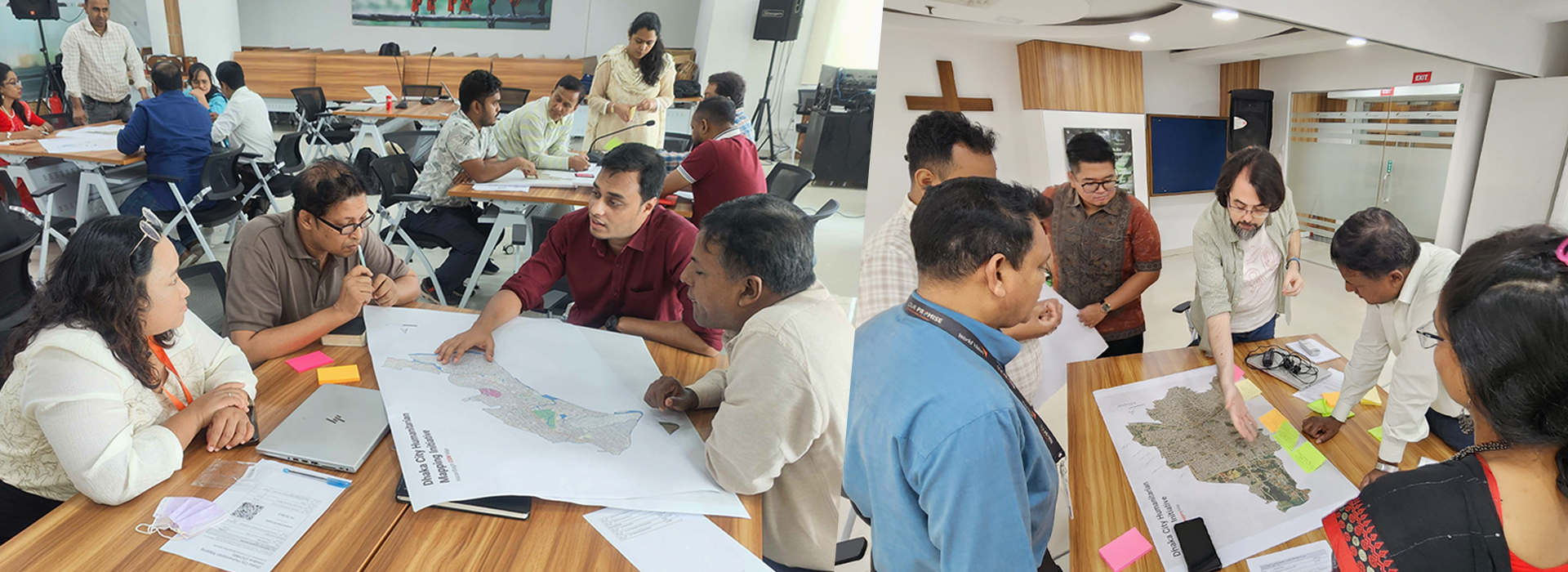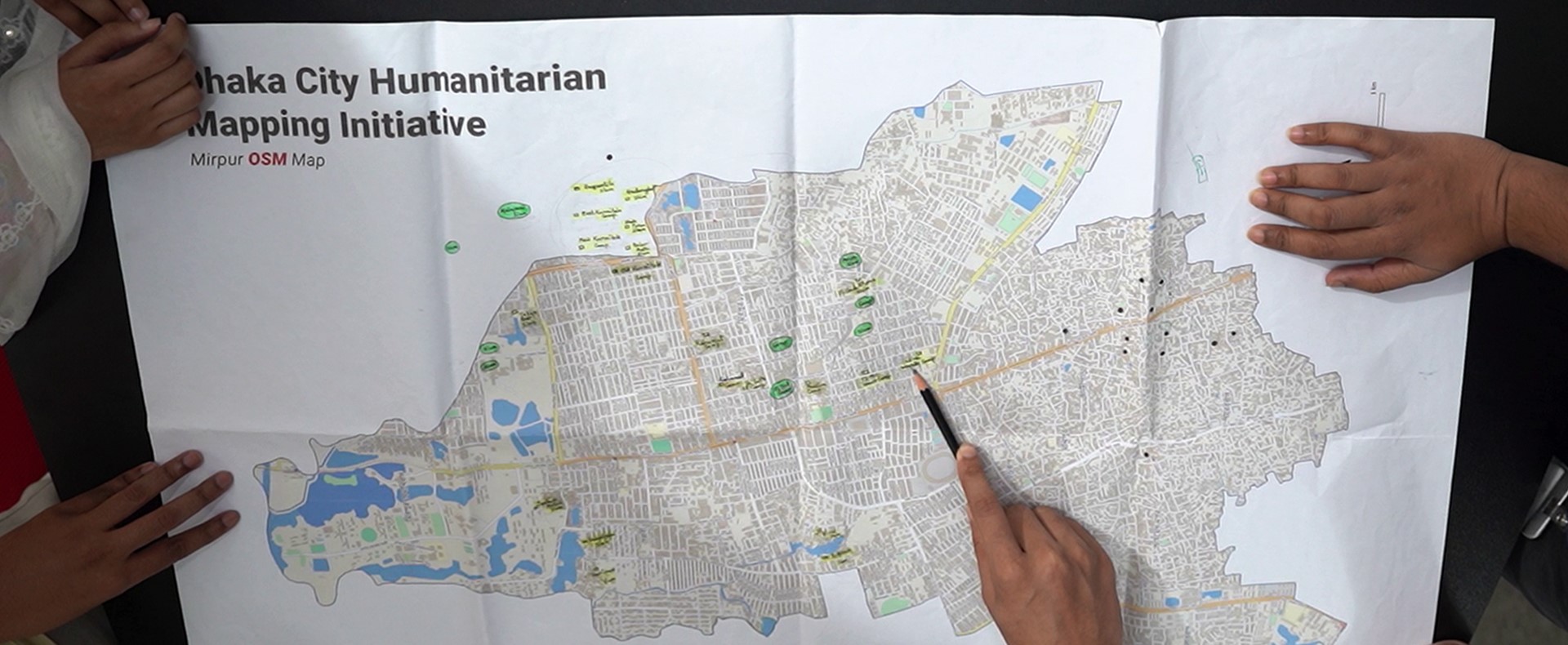Dhaka Thrive - Data-Driven Insights for Climate Resilience and Urban Development - Bangladesh

In 2024, Dhaka Thrive was launched to address the need for open and reliable geospatial data for Dhaka’s informal settlements, laying the foundation for smarter, more inclusive urban planning. In this next phase, the project will focus on transforming insights into action—empowering local communities and decision-makers to drive meaningful, data-informed change.
Dhaka Thrive: Open Data for Smarter, Inclusive Cities
Imagine a city where every decision—from planning safer schools to preparing for climate change and disasters—is shaped by open data created in partnership with communities. This is the vision behind Dhaka Thrive, a joint initiative by Open Mapping Hub - Asia Pacific (AP Hub) and World Vision Bangladesh.
During its pilot phase in 2024, we worked closely with local stakeholders to create comprehensive, up-to-date open map data and vulnerability analysis of informal settlements in Mirpur, North Dhaka.
The key output is the Dhaka Thrive Dashboard—a dynamic, accessible map and data visualization platform designed to equip stakeholders with the insights needed to create informed, sustainable, and resilient urban solutions.
By developing a strong geospatial database, it will be easier to understand shifting population dynamics and needs in the coming decades. This is especially important now as Bangladesh prepares to exit its LDC (Least Developed Country) status in 2026, when the need for smart and inclusive urban planning will become even more critical.
Turning Data into Actionable Insights

Collaboration and participation from local actors have always been central to Dhaka Thrive. In line with these core values, our goals for 2025 focus on two key areas:
1) Data for decision-making
We aim to collaborate with stakeholders to leverage the collected data and dashboard for actionable insights and informed decisions. This will be done through:
- Workshops with potential data users.
- Documentation of data use cases to illustrate how the collected data can be applied across various urban and climate issues or contexts.
2) Scaling and local community empowerment
Building on the 2024 pilot, where data collection was largely led and carried out by local teams, this year we are opening the door for broader community involvement through the Dhaka Thrive Challenge.
This campaign is an open call for Dhaka’s community members where they will participate in an 8-week challenge (July–September 2025) to map critical data in Dhaka’s informal settlements, both within and beyond the areas mapped during the pilot. Over 30 people–most of them youths–are actively contributing to field data collection focused on three categories: hazard risks, critical lifeline facilities, and street-level imagery.
How You Can Support

1) Explore - Dive into the Dhaka Thrive Dashboard to gain valuable insights and discover its potential to support your work.
2) Expand - Contribute to our participatory mapping through our integrated tool and help expand the dashboard’s reach beyond North Dhaka.
3) Share - Help spread the word by sharing the project, data, and dashboard with potential users, partners, and communities who can benefit from them.
Follow our social media for the latest updates from the project.
If you’re interested to learn more about the Dhaka Thrive Dashboard, or thinking about creating a similar dashboard for your project, please reach us at openmappinghub.ap@hotosm.org
Cover photo credit: World Vision Bangladesh volunteer team

